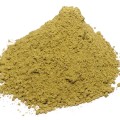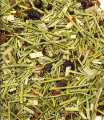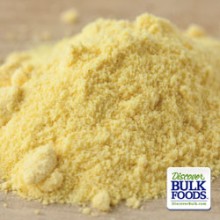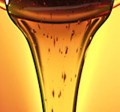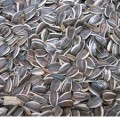 Loading... Please wait...
Loading... Please wait...- Home
- About Us
- Shipping, Returns & FAQ's
- Contact Us
-
For Your Information
- Canadian Customers Have a Choice if Shipping Via UPS
- Aura Cacia Homemade Aromatherapy Recipes
- Bella Nella Altered Art & Paper Crafts Blog
- Forms of Herbal Preparations
- Laundry Tips To Conserve Energy Blog from The Laundress
- The Story of Frontier Natural Products Co-Op
- Sovereign Silver Hydrosol and Aloe Protocol Stops Downward Spiral of Gut Dysbiosis
- Disclaimers
- Recommended Links
- RSS/Recent News
- The Story of Typhoon Housewares
- Reviews/Testimonials
- Raw Ingredients for Mfg
- Home
- Supplements
- Cardiovascular
- Sunflower Lecithin Powder Bulk
- Home
- Supplements
- Fitness
- Sunflower Lecithin Powder Bulk
- Home
- Grocery
- Baking Ingredients
- Sunflower Lecithin Powder Bulk
Sunflower Lecithin Powder Bulk
Product Description
Lecithin is often used in the food industry as an emulsifier, thickener, stabilizer, moisturizer, and mild preservative, and it helps to improve moisture and texture in a number of food products. This powder is often present in vegan or low fat cooking as an alternative to fat in baked goods. Add to a variety of baked items including breads, cakes, casseroles, and cookie dough as an anti-caking, pan release, and moisturizing agent.
What is lecithin? You are probably familiar with the word. In fact, you may even be taking it as a supplement. But what is lecithin really? Where does it come from? And what can it do for you?
In biochemistry and other related science, lecithin is a synonym for phosphatidyl choline. It is the main lipid component in biological membranes, like our cell membranes or cell walls of plants. On the other hand, commercial lecithin is actually a natural mixture of neutral and polar lipids, including glycolipids, triglycerides, sterols, and small quantities of fatty acids, carbohydrates, and sphingolipids. The polar lipid Phosphatidyl choline is present in commercial lecithin in concentrations of 20 to 90%.
Cosmetic Use
Lecithin powder is an emollient, which is a softening and soothing agent. In addition, it has magnificent moisturizing properties, and helps to hydrate the skin. The phospholipids naturally present in lecithin are able to attract water from the air, and in doing so, increase hydration. This makes it an excellent additive for restorative creams, or for products designed for mature, dry, or overworked skin. It also has the unique ability to deeply penetrate the skin, and carry substances directly to the cells and the bloodstream. Because of this, it may assist the body in absorbing other properties as well. If a product is created with natural and healing ingredients, then the addition of lecithin would actually bring those beneficial properties to the cellular level. Lecithin also has emulsifying, stabilizing, thickening, and suspending qualities. With these amazing and varied capabilities, the addition of lecithin could assist in the therapeutic and medicinal properties of your body care products.
Lecithin powder may be easily added to your products by first dissolving it into the oil portion of your recipe. To do this, heat the mixture while stirring, until the granules have been fully dissolved. The amount of lecithin used depends upon the recipe type and size, and on the product thickness desired. However, a general rule is 1/2-1 Tablespoon for a 19 oz batch of cream. We recommend experimenting with the amount in small batches.
Where does lecithin come from?
After asking what lecithin is, you want to know where it is found. Lecithin that contains phosphatidyl choline is produced mainly from vegetable sources, although it may also be found in animal and microbial sources. Majority of lecithins in the market today come from soybean, sunflower, and grape seed.
When Maurice Gobley, the French scientist discoverer of lecithin, found lecithin in egg yolk in 1950, egg yolk was the sole source of lecithin used by the commercial food industry. However, by the 1930s, the time when soybean lecithin was discovered, egg yolk no longer held its former place of being the major source of lecithin for commercial use. Today, it is not even a major source of lecithin in nutritional supplements. The reason may be that lecithins that come from plants are GRAS or generally regarded as safe.
Who needs to take lecithin?
When you know all there is to know about what is lecithin, then you probably know already that the substance is synthesized by the body from food. This means that it is not an essential nutrient, since the body can always get its supply of lecithin from its diet. This is also one of the reasons why hardly anyone ever suffers a deficiency in lecithin. Still, having a steady supply of lecithin for our body’s use is good, if only to take advantage of the benefits it has to offer.
Lecithin is naturally found in the foods that we eat, especially rich foods, such as egg yolk, soybeans, grains, wheat germ, fish, legumes, yeast, peanuts, etc. The compound can also be found as supplements. Lecithin capsules, powder, or granules are often marketed as weight loss promoting supplements for dieters and weight loss enthusiasts. In addition to that, lecithin is also taken in a pill form or mixed into health shakes.
What is lecithin’s claim to health?
The following are some of the many health claims that lecithin is said to have:
- Cardiovascular health
- Liver and cell function
- Fat transport and fat metabolism
- Reproduction and child development
- Treatment for gallstones
- Improvement in memory, learning and reaction time
- Healthy hair and skin
- Cell communication
- Physical performance and muscle endurance
- Relief of arthritis
To mix Lecithin use one tablespoon of granules per every pound of dough to improve moisture and texture in a variety of baked goods including breads and cookies. If recipe calles for liquid lecthin use 1/3 less in powder. 1 part liquid = 2/3 or .66 powder.
If you add powdered lecithin to the water in the recipe and dissolve first - you only need 1/2 the amount of powder.
1 part liquid = 1/2 or .50 powder **You can use powder as a substitute for granules.
A safe and effective dose for lecithin has not been determined yet. Since lecithin is considered a dietary supplement, only vague "trial and error" dosing information is available. Clinical studies have used doses ranging from 3.6 grams twice daily (to enhance athletic performance), 30 to 50 grams daily (to treat tardive dyskinesia), to 10 mg three times daily (to treat bipolar mania).
Ingredients: Sunflower seed lecithin, sunflower oil
Find Similar Products by Tag
Find Similar Products by Category
You Recently Viewed...
Currency Converter
Choose a currency below to display product prices in the selected currency.





